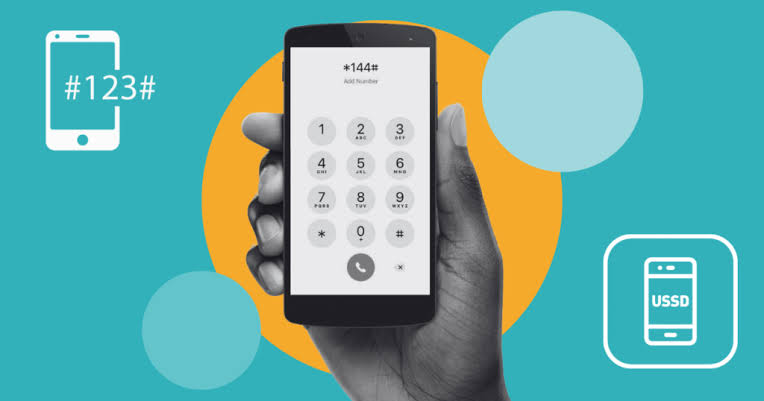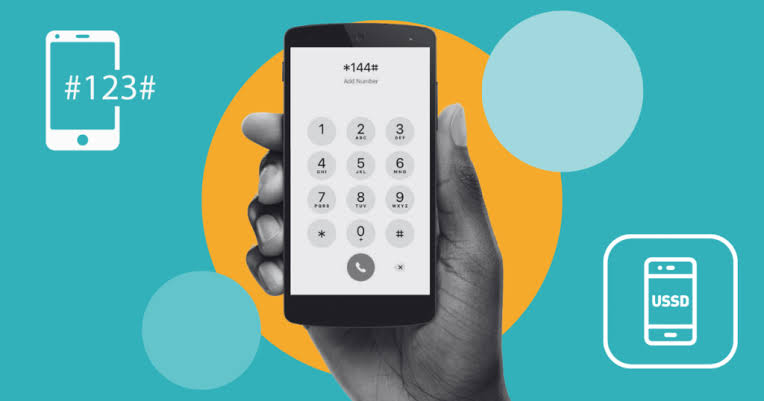Banking Revolution: Your Airtime Now Pays Transaction Fees!
Introduction to the New USSD Fee Policy in Nigeria
On June 18, 2025, a significant shift in the way banking transactions are managed in Nigeria was announced. The National Communications Commission (NCC) has implemented a new policy whereby the N6.98 USSD fee for bank transactions will now be deducted from users’ airtime balances instead of their bank accounts. This change is poised to revolutionize the way Nigerians interact with banking services via Unstructured Supplementary Service Data (USSD), enhancing convenience for users across the nation.
Understanding USSD Transactions
USSD transactions are a popular method for conducting banking operations in Nigeria, especially among individuals who may not have access to traditional banking services or a stable internet connection. The USSD technology allows users to access their bank accounts, transfer money, pay bills, and conduct various other financial transactions directly from their mobile phones by dialing specific codes.
The Implications of the New USSD Fee Structure
Shift to Airtime Deduction
The primary change in this new directive is the deduction of the N6.98 fee from the user’s airtime balance. This is a notable departure from the previous system, where fees were automatically deducted from the user’s bank account. By linking fees to airtime, the NCC aims to simplify the transaction process and make it more accessible for users who may not regularly maintain a bank account balance.
- YOU MAY ALSO LIKE TO WATCH THIS TRENDING STORY ON YOUTUBE. Waverly Hills Hospital's Horror Story: The Most Haunted Room 502
Increased Accessibility
This policy change is expected to increase accessibility to banking services for the unbanked population in Nigeria. Many individuals rely on mobile phones for financial transactions but may not have sufficient funds in their bank accounts. By allowing fees to be deducted from airtime, more users can engage with banking services without the fear of incurring overdraft fees or being unable to complete transactions due to insufficient bank balances.
Potential Benefits of the New Policy
Enhanced User Experience
The transition to airtime deductions could lead to a more seamless user experience. Customers will no longer need to monitor their bank account balances closely, as they can simply ensure they have enough airtime to complete their transactions. This could foster greater confidence in using USSD services for everyday banking needs.
Encouragement of Digital Transactions
By making USSD banking more user-friendly, the NCC’s new policy might encourage more Nigerians to adopt digital banking practices. This shift is crucial in a country where a significant portion of the population remains unbanked or underbanked. As more people engage with digital banking, it could lead to increased financial literacy and inclusion over time.
Challenges and Considerations
While the new policy offers numerous advantages, it is essential to address potential challenges that may arise.
Airtime Prices and Availability
One concern is the fluctuation of airtime prices. If the cost of airtime increases, users may find it more challenging to conduct bank transactions. Additionally, in remote areas where network coverage may be poor, the reliance on mobile phones for banking could pose difficulties.
User Education
To maximize the benefits of the new policy, there will be a need for increased user education. Many Nigerians may not fully understand the implications of the new USSD fee structure. Banks and telecom providers must work together to educate users on how to navigate this change effectively.
Conclusion
The implementation of the new N6.98 USSD fee deduction from airtime balance marks a significant milestone in Nigeria’s banking landscape. By enhancing the accessibility and convenience of financial transactions, this policy has the potential to encourage more Nigerians to utilize digital banking services. While challenges remain, fostering a better understanding of the changes and ensuring robust infrastructure can lead to a more financially inclusive society. As this policy unfolds, it will be essential to monitor its impact on user behavior and the overall banking ecosystem in Nigeria.
Call to Action
For users looking to stay informed about further developments in banking regulations and practices in Nigeria, it is advisable to follow reputable news sources and engage with their bank’s customer service for any queries related to USSD transactions. Keeping abreast of these changes will enable users to make informed decisions about their financial activities.

BREAKING NEWS: From today 18 June 2025, the N6.98 USSD fee for bank transactions will now be deducted from your airtime balance, no longer from your bank account. pic.twitter.com/AaR8ctN5t1
— Nigeria Stories (@NigeriaStories) June 18, 2025
BANKING NEWS: N6.98 USSD Fee Changes Effective June 18, 2025
In a significant update for banking customers in Nigeria, as of June 18, 2025, the N6.98 USSD fee for bank transactions will now be deducted directly from your airtime balance instead of your bank account. This shift is expected to impact millions of users who rely on USSD services for various banking activities.
WHAT DOES THIS MEAN FOR YOU?
If you’ve been using USSD codes to check your bank balance, transfer funds, or perform other banking tasks, you might want to pay attention. Previously, every time you conducted a transaction, that N6.98 fee would come straight from your bank account. Now, it’ll come out of your airtime balance. For those who might not have enough funds in their bank account but have airtime available, this could be a game-changer.
The change means that if you want to carry out banking transactions, you’ll need to ensure you have enough airtime. In a country where mobile banking is growing rapidly, this adjustment could make services more accessible to those who prefer using USSD over mobile apps or internet banking.
BENEFITS OF THE NEW SYSTEM
This new deduction method has several perks. For starters, if your bank account balance is low, you won’t be locked out of essential banking services as long as your phone has enough airtime. This is particularly beneficial in rural areas where access to banking infrastructure may be limited.
Moreover, it simplifies the transaction process. No more worrying about maintaining a minimum balance just to cover transaction fees. This change can encourage more people to engage in mobile banking since it lowers the barrier for entry.
HOW TO ADAPT TO THE NEW CHANGES
Adapting to this new change is fairly straightforward. First, ensure that you have a sufficient airtime balance before launching any USSD banking transaction. You can easily check your balance by dialing the appropriate code for your mobile network.
Next, familiarize yourself with your bank’s USSD codes if you haven’t already. Each bank has its specific codes for different transactions. Make sure you have these codes saved or noted down to avoid any confusion during transactions.
If you’re used to checking your bank account balance or transferring money through USSD, it might be wise to keep an eye on your airtime regularly. Running out of airtime while trying to make an urgent payment can be frustrating!
WHAT USERS ARE SAYING
Feedback from users has been mixed since the announcement. Many are excited about the flexibility that comes with using airtime for transactions. Others, however, are concerned about the implications for those who may not have enough airtime at all times.
It’s important to understand that while this change can benefit many, it may also pose challenges for some users. As the banking landscape in Nigeria continues to evolve, it’s crucial for customers to stay informed and adapt to these changes.
LOOKING INTO THE FUTURE OF MOBILE BANKING
The shift in how transaction fees are deducted could be indicative of broader trends in mobile banking. With the rapid adoption of mobile technology in Nigeria, financial institutions are likely to continue innovating and adapting their services to meet consumer needs.
As more people gain access to smartphones and mobile data, the reliance on traditional banking methods will likely decrease. Financial institutions are recognizing this trend and are making efforts to ensure their services are user-friendly and accessible.
IS THIS CHANGE PERMANENT?
While there’s no indication that this change will be reversed, it’s essential to keep an eye on future announcements from Nigerian banks and telecommunications companies. As technology evolves and consumer needs change, there may be further adjustments to how banking transactions are handled.
Keeping yourself updated through reliable news sources is key. For instance, [Nigeria Stories](https://twitter.com/NigeriaStories) shared the breaking news about this transition, highlighting the importance of staying informed about updates that could affect your banking experience.
NAVIGATING POTENTIAL ISSUES
As with any change, there may be teething issues. Some users may experience difficulties when trying to transact due to low airtime or may not be aware of this change. It’s advisable to share this information with friends and family to ensure everyone is on the same page.
Additionally, if you encounter any problems, don’t hesitate to reach out to your bank’s customer service for assistance. They can provide guidance and support for any issues that arise during this transition.
FINAL THOUGHTS
In conclusion, the change regarding the N6.98 USSD fee deduction marks a significant shift in how banking transactions are conducted in Nigeria. By deducting the fee from airtime balances, banks are making their services more accessible to a broader audience.
While there are certainly benefits to this change, it’s essential for users to be proactive about managing their airtime and staying informed. As mobile banking continues to grow, adapting to these changes will be crucial for all users.
Remember, as with any financial service, knowledge is power. Stay tuned to updates from your bank and reliable news sources to navigate this new banking landscape effectively.

